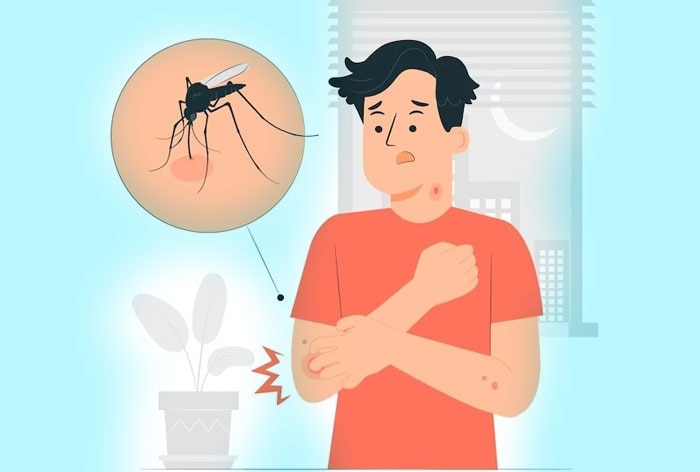Dengue Fever”: Mosquitoes that transmit diseases like dengue and chikungunya are more likely to bite during the day, but they can also do so at night and infect a human.

Dengue Fever: A mosquito carrying the dengue virus bites a person and spreads the disease. The virus that causes dengue has 4 different serotypes which are referred to as DEN-1, DEN-2, DEN-3, and DEN-4. The number of dengue cases reported throughout the nation has steadily increased over the past several weeks. While the unpredictable monsoons and seasonal shifts are the main contributors to the increase, dengue infections are also getting worse due to the newly circulating varieties.
DOES DENGUE MOSQUITO BITE AT NIGHT ALSO?
The ability of dengue mosquitoes to attack at night is frequently unknown to many individuals. Mosquitoes that transmit diseases like dengue and chikungunya are more likely to bite during the day, but they can also do so at night and infect a human. The mosquito is most active throughout the day, around two hours after dawn and several hours before sunset, according to health.hawaii.gov. Rarely, though, they may also choose to bite people after sundown.
The location where the insect bites a human is another striking characteristic of these dengue bites. According to reports, dengue-carrying mosquitoes prefer to bite people between their elbows and ankles. It should be kept in mind that just one mosquito bite is required to infect a person and cause symptoms.
DENGUE FEVER SIGNS AND SYMPTOMS
The duration between a mosquito bite and the onset of the dengue virus infection in the body is thought to be between 4 and 10 days. According to doctors, the symptoms might appear at any time after then and produce a variety of signs and symptoms, based on your risk factors, age, and current medical conditions. Some of the common early signs of dengue include the following:
- Extremely high fever
- Muscle aches
- Chillies, exhaustion, and weakness
- Bone and joint discomfort
- Abdominal pain
- Rashes and eye redness
- Vomiting and dizziness
For the unversed, the national capital may be experiencing its biggest dengue outbreak since 2015. Currently, there are more than 3,000 dengue cases and one fatality so far this year. Due to the Yamuna’s exceptional rise in water levels, Delhi experienced flood-like conditions in July. In addition to pre-monsoon rains, the capital also saw exceptional levels of precipitation in September.
